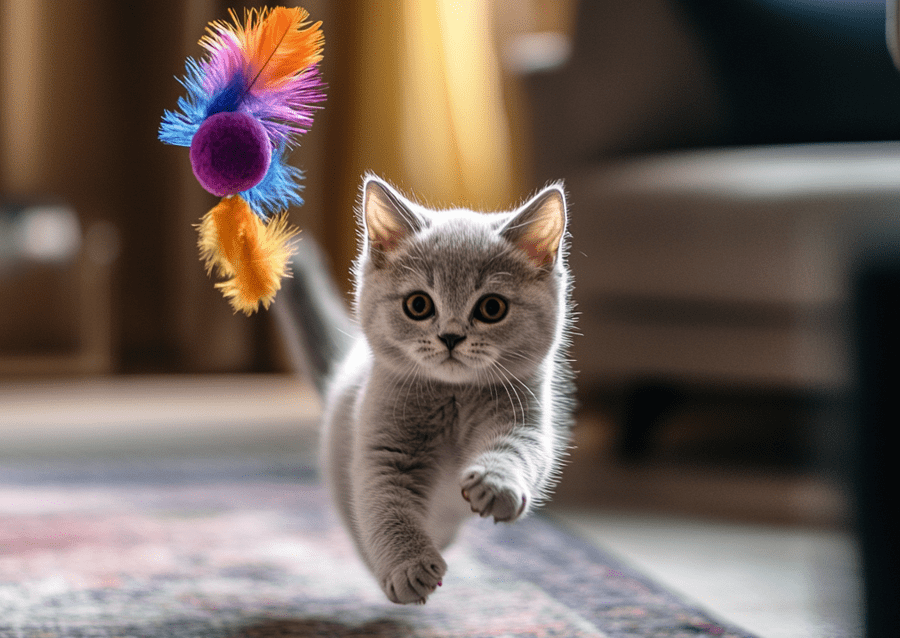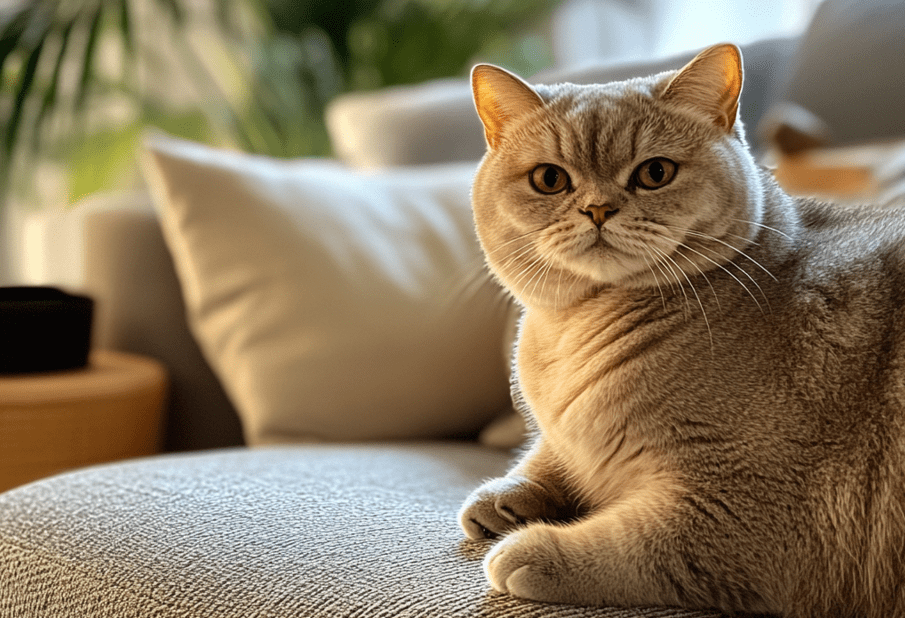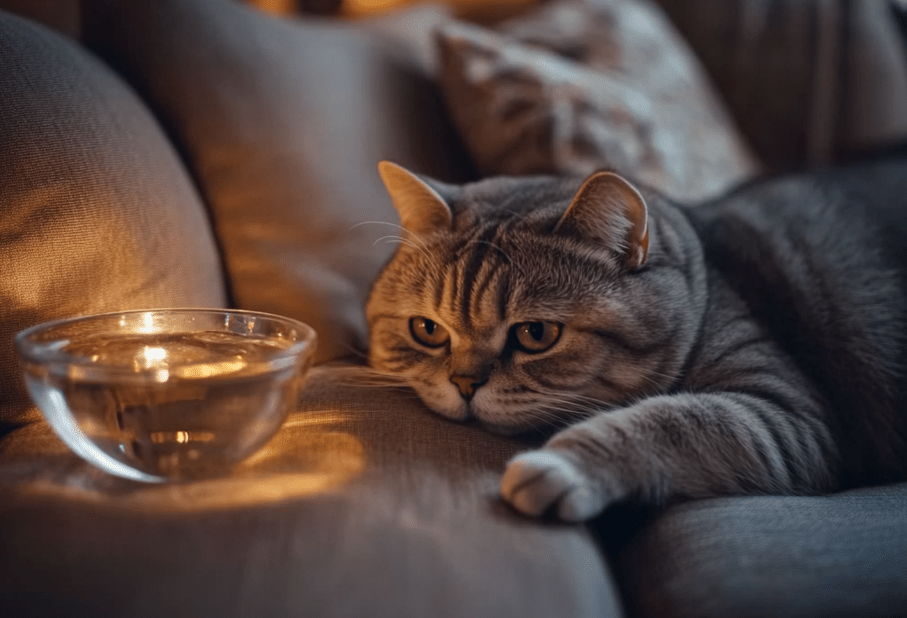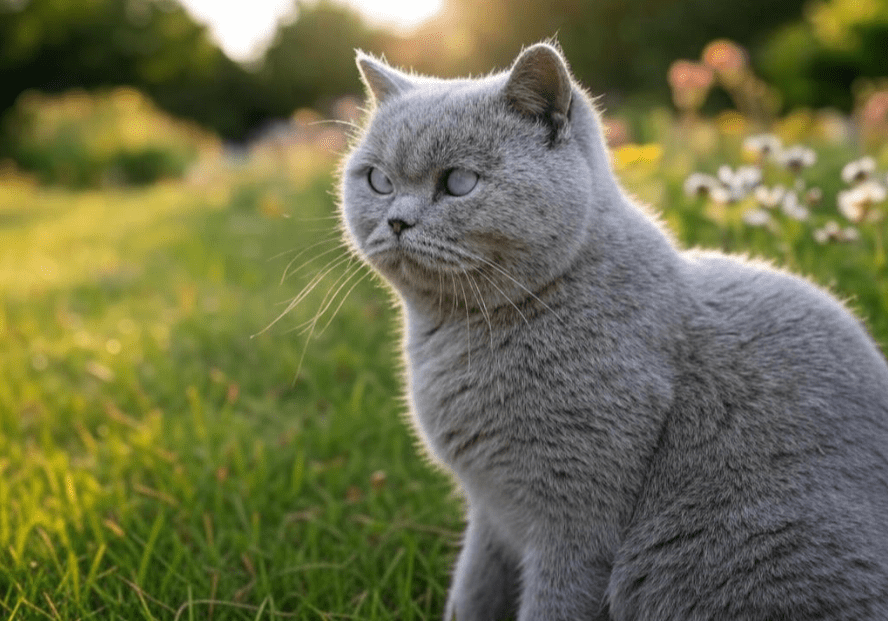
Obesity is a growing concern for many cat breeds, including the charming British Shorthair Cat. Known for their plush coats, round faces, and sturdy bodies, British Shorthairs are prone to gaining excess weight if their diet and lifestyle aren’t carefully managed. Preventing obesity in your British Shorthair Cat is essential to ensure they live a long, healthy, and happy life. Excess weight can lead to serious health issues like diabetes, joint problems, and heart disease, which can diminish their quality of life. In this comprehensive guide, we’ll explore five effective ways to prevent obesity in your British Shorthair Cat, offering practical tips and insights to keep your feline friend in top shape.
This article is designed to provide cat owners with actionable advice, backed by veterinary insights and tailored specifically to the unique needs of British Shorthairs. Whether you’re a new pet parent or an experienced owner, these strategies will help you maintain your cat’s ideal weight and promote their overall well-being.
Why British Shorthair Cats Are Prone to Obesity
Before diving into the solutions, it’s important to understand why British Shorthair Cats are particularly susceptible to obesity. This breed has a naturally stocky, muscular build, which can sometimes mask excess fat. Their calm and laid-back personalities also mean they’re less likely to engage in high-energy activities compared to more active breeds like the Abyssinian or Bengal. Additionally, British Shorthairs have a hearty appetite and can easily overeat if portions aren’t controlled.
Other contributing factors include:
Genetics: British Shorthairs have a genetic predisposition to store fat, especially as they age.
Indoor Lifestyle: Many British Shorthairs live indoors, which limits their opportunities for exercise.
Neutering/Spaying: These procedures can slow metabolism, increasing the risk of weight gain.
Overfeeding: Owners may unintentionally provide too much food or high-calorie treats.
By addressing these factors proactively, you can help your British Shorthair maintain a healthy weight and avoid obesity-related complications.
1. Feed a Balanced, Portion-Controlled Diet
One of the most effective ways to prevent obesity in your British Shorthair Cat is to provide a balanced, portion-controlled diet tailored to their needs. British Shorthairs don’t require as many calories as more active breeds, so overfeeding can quickly lead to weight gain.
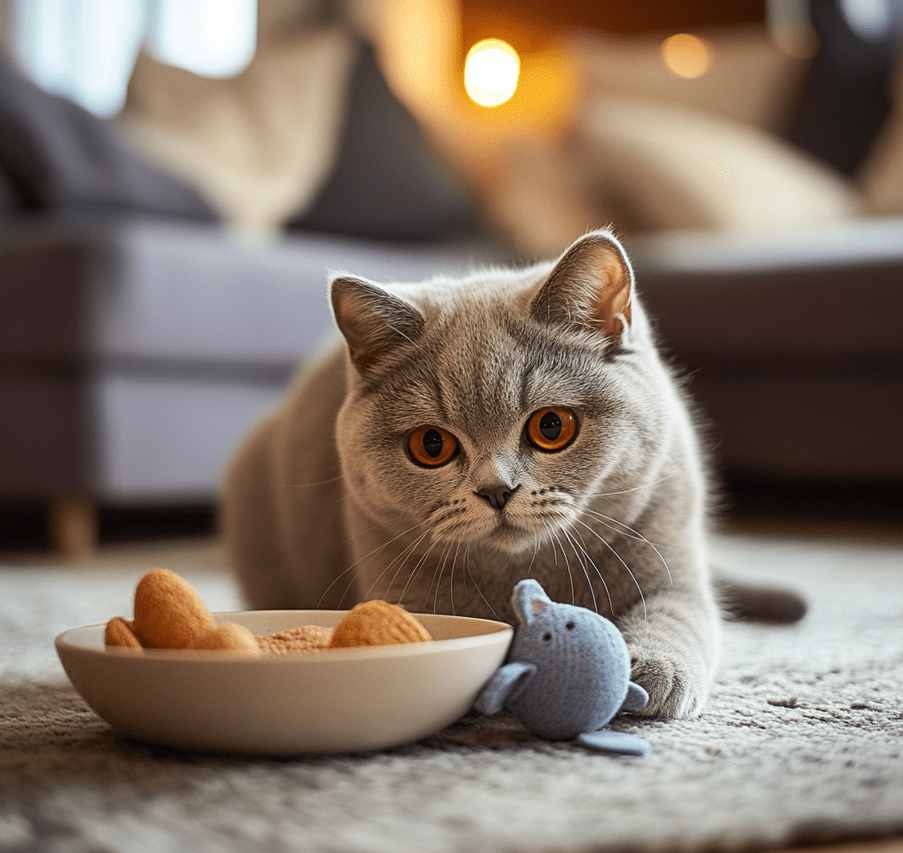
Choose High-Quality Cat Food
Select a premium cat food formulated for weight management or indoor cats. Look for options with:
High Protein Content: Protein supports muscle maintenance and keeps your cat feeling full.
Low Carbohydrates: Excessive carbs can contribute to fat storage.
Healthy Fats: Omega-3 and omega-6 fatty acids promote coat health without adding unnecessary calories.
Fiber: Fiber aids digestion and helps your cat feel satisfied after meals.
Wet food can be a great choice for British Shorthairs because it’s high in moisture, which supports hydration and urinary health while being lower in calories than dry kibble. However, a combination of wet and dry food can work well if portion sizes are carefully measured.
Measure Portions Accurately
Free-feeding (leaving food out all day) is a common cause of obesity in British Shorthairs. Instead, measure your cat’s food using a kitchen scale or measuring cup to ensure they’re getting the right amount. Follow the feeding guidelines on the cat food packaging, but adjust based on your cat’s age, weight, and activity level. Consult your veterinarian to determine the ideal daily calorie intake for your British Shorthair.
Limit Treats
Treats are a great way to bond with your cat, but they should make up no more than 10% of their daily calorie intake. Opt for low-calorie treats or use pieces of their regular kibble as rewards. Avoid human foods like cheese or deli meats, which are high in fat and sodium.
Establish a Feeding Schedule
Feed your British Shorthair two to three meals per day at consistent times. A regular feeding schedule helps regulate their metabolism and prevents overeating. If your cat begs for food between meals, distract them with playtime or affection rather than giving in.
2. Encourage Regular Exercise
British Shorthair Cats are known for their relaxed demeanor, but regular exercise is crucial to prevent obesity. Physical activity burns calories, strengthens muscles, and keeps your cat mentally stimulated.
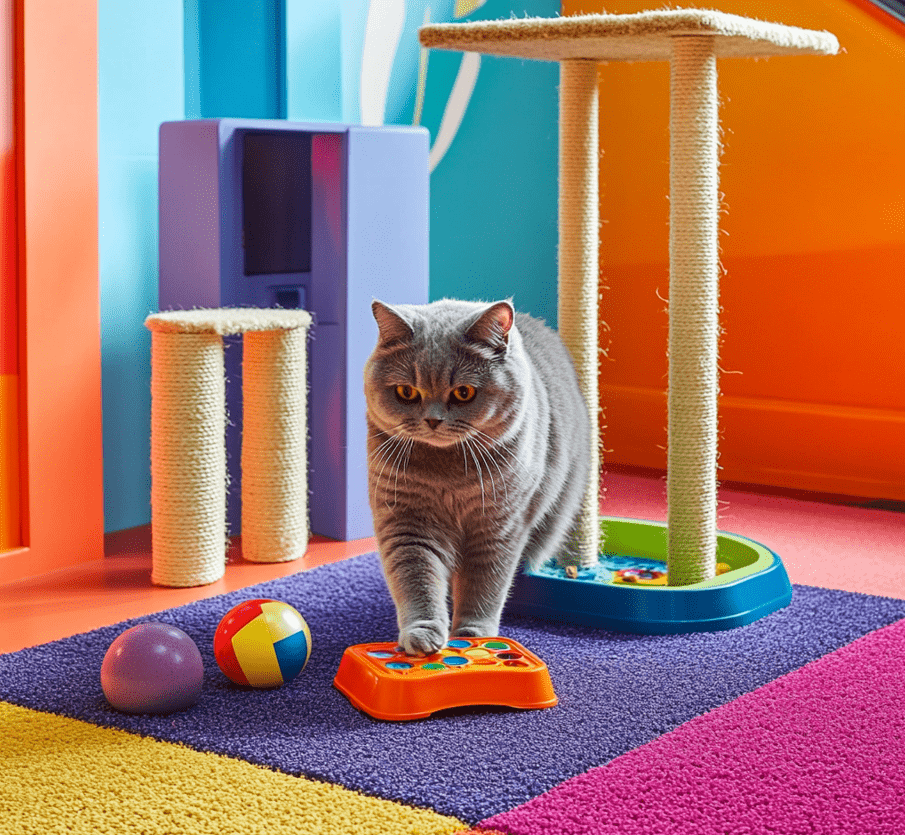
Interactive Playtime
Engage your British Shorthair in daily play sessions using toys that mimic prey, such as feather wands, laser pointers, or toy mice. Aim for at least 15–30 minutes of active play per day, split into two or three sessions. Interactive toys encourage your cat to chase, pounce, and jump, which helps burn calories and maintain a healthy weight.
Environmental Enrichment
Create an environment that encourages movement. Consider adding:
Cat Trees: Multi-level cat trees provide opportunities for climbing and scratching.
Perches: Window perches allow your cat to observe the outdoors, stimulating their curiosity.
Tunnels and Boxes: These encourage exploration and play.
Puzzle Feeders: These make your cat work for their food, combining mental stimulation with physical activity.
Rotate toys regularly to keep your British Shorthair interested and prevent boredom.
Outdoor Access (If Safe)
If you have a secure outdoor space, such as an enclosed catio, allow your British Shorthair supervised access to explore. Fresh air and natural stimuli can encourage gentle exercise. However, always ensure the area is safe from predators, traffic, and other hazards.
Monitor Activity Levels
As your British Shorthair ages, their activity levels may decrease. Senior cats may need shorter, gentler play sessions to stay active without causing strain. Adjust their exercise routine to match their energy levels and physical capabilities.
3. Monitor Your Cat’s Weight Regularly
Keeping track of your British Shorthair’s weight is an essential part of obesity prevention. Regular monitoring allows you to catch weight gain early and make adjustments before it becomes a serious problem.
Weigh Your Cat Monthly
Use a digital pet scale or a baby scale to weigh your British Shorthair once a month. Alternatively, weigh yourself holding your cat, then weigh yourself alone and subtract the difference. Record their weight to track trends over time.
Check Their Body Condition Score (BCS)
The Body Condition Score is a visual and hands-on way to assess whether your cat is at a healthy weight. For British Shorthairs, aim for a BCS of 4–5 on a 9-point scale, where:
1.You can feel their ribs with slight pressure but not see them.
2.Their waistline is visible when viewed from above.
3.Their abdomen tucks slightly when viewed from the side.
Your veterinarian can teach you how to evaluate your cat’s BCS at home.
Schedule Regular Vet Checkups
Annual or biannual vet visits are crucial for monitoring your British Shorthair’s overall health. Your vet can assess their weight, recommend dietary adjustments, and screen for obesity-related conditions like diabetes or arthritis. If your cat is already overweight, your vet can create a safe weight-loss plan tailored to their needs.
4. Manage Stress and Boredom
Stress and boredom can lead to overeating in British Shorthair Cats, contributing to weight gain. A happy, mentally stimulated cat is less likely to seek comfort in food.

Provide Mental Stimulation
British Shorthairs are intelligent and curious, so keeping their minds engaged is important. Try:
Puzzle Toys: These challenge your cat to solve problems to access treats or kibble.
Training: Teach your British Shorthair simple tricks like “sit” or “high-five” using positive reinforcement.
Rotating Toys: Introduce new toys periodically to maintain their interest.
Create a Stress-Free Environment
Stress can cause your cat to overeat or become sedentary. Minimize stress by:
1.Providing a quiet, safe space where your cat can retreat.
2.Maintaining a consistent routine for feeding, playtime, and litter box cleaning.
3.Using pheromone diffusers to promote calmness if your cat is anxious.
Address Multi-Cat Household Dynamics
If you have multiple cats, ensure each has access to their own food, water, and litter box to prevent competition or stress-induced overeating. Feed your British Shorthair separately to monitor their intake.
5. Spay/Neuter Responsibly and Adjust Care Accordingly
Spaying or neutering your British Shorthair Cat is important for their health and behavior, but it can increase the risk of obesity by slowing their metabolism. To counteract this:
Adjust Feeding Post-Surgery: After spaying or neutering, reduce your cat’s food intake by about 20–25% to account for their lower energy needs. Consult your vet for specific recommendations.
Increase Exercise: Encourage more playtime to offset the metabolic slowdown.
Monitor Weight Closely: Weigh your cat regularly in the months following the procedure to ensure they’re not gaining excess weight.
Spaying or neutering is typically done between 6–12 months of age, but discuss the best timing with your veterinarian based on your cat’s health and development.
Common Obesity-Related Health Issues in British Shorthair Cats
Preventing obesity isn’t just about maintaining your British Shorthair’s appearance—it’s about protecting their long-term health. Excess weight can lead to:
Diabetes Mellitus: Obesity increases the risk of insulin resistance, which can develop into diabetes.
Arthritis and Joint Pain: Extra weight puts strain on joints, causing discomfort and reduced mobility.
Heart Disease: Obesity can contribute to heart conditions like hypertrophic cardiomyopathy, which is already a concern in British Shorthairs.
Urinary Tract Issues: Weight gain can exacerbate conditions like feline lower urinary tract disease (FLUTD).
Reduced Lifespan: Obese cats are more likely to develop chronic illnesses, shortening their life expectancy.
By implementing the strategies outlined above, you can significantly reduce the risk of these health problems and help your British Shorthair thrive.
Conclusion
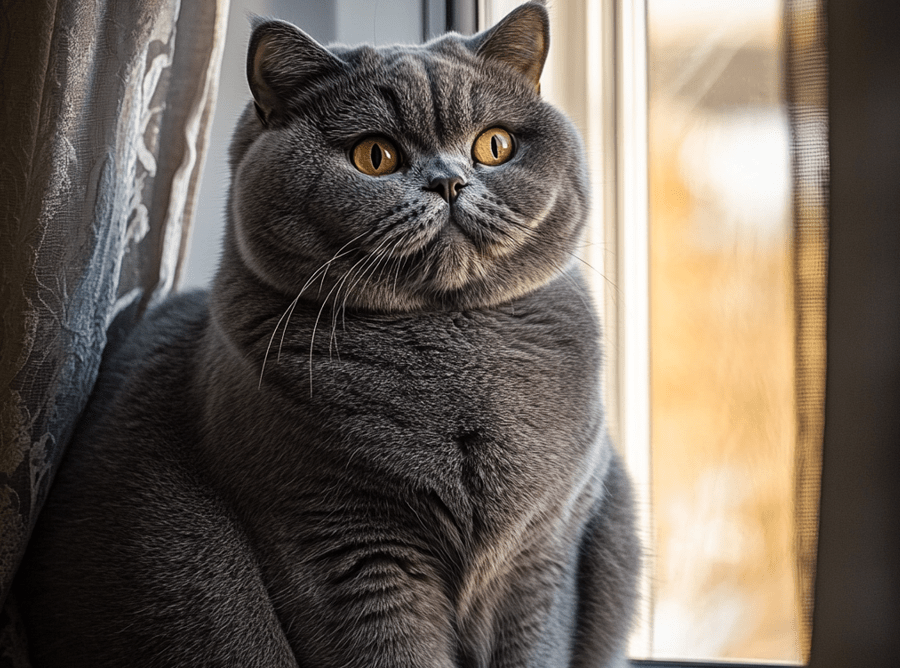
Preventing obesity in your British Shorthair Cat is a proactive commitment to their health and happiness. By feeding a balanced, portion-controlled diet, encouraging regular exercise, monitoring their weight, managing stress, and adjusting care after spaying or neutering, you can keep your British Shorthair at a healthy weight. These five strategies are practical, effective, and tailored to the unique needs of this beloved breed.
Start implementing these tips today, and consult your veterinarian for personalized advice. With the right care, your British Shorthair Cat can enjoy a vibrant, active life free from the risks of obesity. Let’s give our feline friends the gift of health—one paw step at a time!

